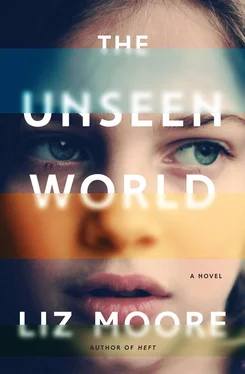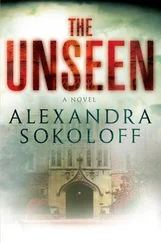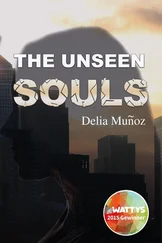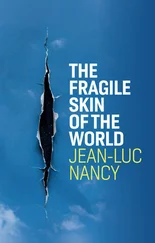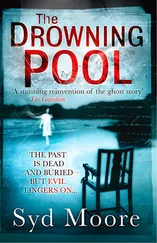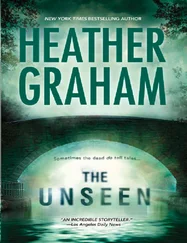And then it all came back: she had told him once she’d decrypted it, she realized.
“I never read it!” she said. “I saw it, but William interrupted me before I’d finished.”
“You’re kidding,” said Gregory. “Are you kidding?”
“No,” said Ada. “I promise. I think I was just trying to make you feel bad when I found you in David’s house later.”
Gregory dropped his hands to his sides. “I spent years and years being embarrassed about that. I can’t believe it.”
“What did it say?” said Ada.
Gregory paused. He turned toward her. His face was kind, familiar and unfamiliar all at once, uncanny, a time traveler’s face. It tugged at her. It rang a bell someplace deep in her abdomen.
“Never mind,” said Gregory.
“I have to tell you something now,” he said.
“What?”
“Two things, actually.”
“What are they?”
“You’ll hate me for them.”
“No, I won’t,” said Ada, and she meant it; in that moment it didn’t seem possible.
“I took the disk,” said Gregory. “I took David’s disk, the original copy. I was seventeen. You had just left for college.”
She paused, regarded him. He looked solemn, his head lowered, as if waiting for a blow.
“Why?” she asked him.
“I wanted to solve it. I wanted to be the one to solve it for you,” said Gregory.
“I could have solved it myself,” said Ada. “I think I would have, eventually.”
“I know you would have,” said Gregory. “It made no sense. It was wrong. When I was a kid,” he began, but then he shook his head. “I meant to put it back before you noticed it was gone, but I forgot to. And then my mother told you she must have thrown it out, and then I was too embarrassed to confess.”
Gregory darted a glance at her. Looked down again.
“I’m sorry,” he said. “I’m so sorry. It was incredibly wrong of me. I’ve thought for years about returning it to you, but instead I’ve just been avoiding the issue altogether.”
“Well,” said Ada. “Thank you for returning it now.”
She thought for a moment. She remembered the other times that Gregory had apologized to her, as a boy, in this attic: for the mistakes he had made. Once, for using a terrible word about her father.
“What was the other thing?” she asked.
He hesitated. “I didn’t really have a meeting in San Francisco,” he said.
She smiled, finally. “I probably could have guessed that one.”
“I really did find the disk when I was going through my things to move out,” said Gregory. “I hadn’t looked at it in years. I was afraid to. I even forgot where it was. And as soon as I came across it and saw the inscription on it — I knew.”
“I can’t believe I gave everyone copies to work from,” said Ada. “Of course we needed the original. I should have known better, even as a kid. David would have been so disappointed.”
“It didn’t occur to me, either, back then,” said Gregory.
She tried to recall him: Gregory as a teenager. He was still painfully shy at that age. In the Queen of Angels Upper School, he had transitioned from being outspoken and therefore the target of every bully, to being silent and therefore largely invisible. By his junior year he was listening to punk rock and New Wave, drawing on the sneakers he wore on weekends, sitting sullenly in class. He was part of a larger group of boys like him. Nobody paid them any attention, which was exactly what they wished for. He had also, around that time, stopped speaking almost entirely to Ada, who until that point had been his only friend. She had been hurt; she had tried to engage him, the way she had done previously, with lessons, or with games. By the late eighties there were decent ones to play on the computer, and Ada had mastered some of them. But suddenly Gregory preferred to be by himself. He had taken William’s room when William left home — enrolling at Roger Williams after Liston’s absolute insistence that he get a college education, and then just barely scraping by for a year before dropping out to work construction — and Gregory proceeded to split all of his time between his new bedroom and the attic. Ada, sensing that she would be unwelcome, at a certain point stopped venturing up to the third floor altogether. Through college and graduate school, they were cordial but never close.
Gregory walked to the window of the attic. She watched him as he went.
“How did you find it in the first place?” she asked. “Back when we were kids. It was hidden in a dictionary.”
“I was. . going through your stuff. After you left for college.”
“Why?”
“Will you make me say it now?” said Gregory.
“No,” said Ada, though she realized as soon as the words left her that she wanted him to. She wanted to hear his voice as he said it.
She looked down at herself with something like curiosity. She rarely considered her own physical presence on the earth; for much of her life, and increasingly in recent years, she had felt like a brain in a vessel meant only to sustain its function. Only Jim, in graduate school, had ever made her feel anything different. Only Jim had looked at her body with open want, had touched it, the first time, as if it were something fragile and substantial at once; something capable; something meant to be tested and revered. Those years were a spell under which she had fallen. Since then she had told herself they were anomalous, a coincidence, a lightning strike of taste and place and timing. No one, since Jim, had turned a gaze upon her like the one that Gregory now bore.
She watched him as he looked at her. And she felt something ancient and abandoned awakening in her, bottomless and strange, like the revelation of a new dimension she had not known existed.
“You can say it if you want to,” said Ada. But suddenly she felt there was no power in language, and then they were not speaking, or thinking. He was near her.
“Can I?” he said, and she nodded. He put a hand to her face first, as if testing for fever.
When she breathed, she felt she was taking something into her lungs alongside the air: the molecules of Gregory, the ether of him, the atmosphere. His world. Something difficult to describe in words alone.
About Harold Canady, Ada found no further information in any newspaper. He had well and truly disappeared: just as he had wanted to.
When David’s house sold, finally, in 1987, they found nothing at all when they went through his possessions. Outside the family photograph that Ada had discovered years ago, he had kept no trace of his earlier life.
“Well,” Liston had said, “David was always thorough, wasn’t he?”
Ada nodded.
She could never bring herself to call her father Harold, even silently, and Liston seemed to tacitly agree. For the rest of her life, even into her old age, when so much else had come to light, he was David to her. He had chosen to go by this name for a reason, she told herself.
She spent the rest of her time at the Queen of Angels Upper School in a sort of limbo. For the final half of her freshman year, she avoided any contact with William. She avoided being alone with him. When he left for college in August, she let out a deep breath that she did not realize she’d been holding. Liston, who didn’t miss much, had looked at both of them curiously from time to time; but she never asked the question.
At school, Ada had many good-enough friends, and two or three true compatriots. Lisa Grady became suddenly and violently pretty as a sophomore, and was kind enough to keep Ada as her closest companion, despite Ada’s previous disloyalty; the two of them would remain friends into old age. It was around this time that Gregory, too, began to withdraw from her; and so only Matty and Liston were left to talk to at home. She told herself she didn’t mind; the two of them provided excellent companionship, and Liston, as she grew more comfortable in her role as director of the lab, became more carefree, funnier — more like the Liston that Ada had known as a young child.
Читать дальше
